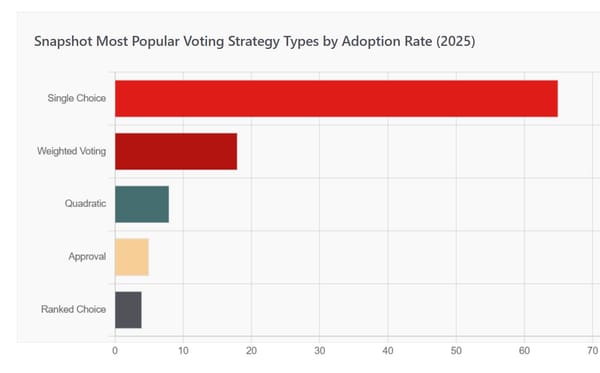Aragon Launches Free Onchain Voting for Ethereum DAOs

Aragon announced a new feature for its Multichain Governance plugin on September 12, 2024, allowing Ethereum Mainnet DAOs to conduct gasless onchain voting. The update aims to boost participation in DAO governance by eliminating transaction fees for voters.
The system utilizes LayerZero V2 for cross-chain vote aggregation, ZKsync's account abstraction, and txSync's Tsuko paymaster to cover gas costs. This combination enables DAO members to cast votes without incurring fees, potentially increasing engagement in decision-making processes.
Anthony Leutenegger, Aragon's CEO, explained the rationale behind the development:
"High gas fees have forced many DAOs to use offchain solutions, compromising security and trust-minimization. Our goal is to bring accessible voting back onchain."
Key features of the update include:
- Cross-chain voting compatibility
- Free voting through gas subsidization
- Streamlined user interface for token bridging and voting
- Cross-chain proposal execution
- Modular plugin architecture
The new system involves several steps: token bridging, proposal creation, voting, vote aggregation and transmission, and proposal execution. Aragon offers support for DAOs implementing the updated plugin.
Leutenegger shared his expectations for adoption: "We predict that the majority of DAOs currently using offchain signaling will begin to move onchain as the technology advances. We're also hoping to see Mainnet DAOs adopt this solution to lower voting costs for their members."
Aragon's future plans include developing a more advanced cross-chain voting solution using storage proofs, in collaboration with RISC Zero and supported by an Optimism grant. This project aims to:
- Remove the need for token bridging to vote
- Enable voting with any token type
- Maintain delegation across chains
- Automate vote dispatching
- Expand gasless voting through Coinbase Wallet integration
The introduction of free onchain voting addresses a significant barrier to DAO participation. By reducing financial obstacles, the technology could potentially increase the inclusivity and representativeness of decentralized governance.
As DAOs continue to evolve, solutions like Aragon's may play a crucial role in shaping their future. The elimination of voting fees could lead to more active member involvement and potentially more diverse decision-making within these organizations.
However, challenges remain. The long-term sustainability of subsidized voting, potential centralization risks associated with relying on specific technologies or providers, and the overall impact on DAO governance structures are yet to be fully understood.
The crypto community's response to this development will likely influence its adoption and potential refinements. As more DAOs experiment with gasless voting, patterns in participation rates, proposal quality, and governance outcomes may emerge, providing insights into the effectiveness of this approach.





